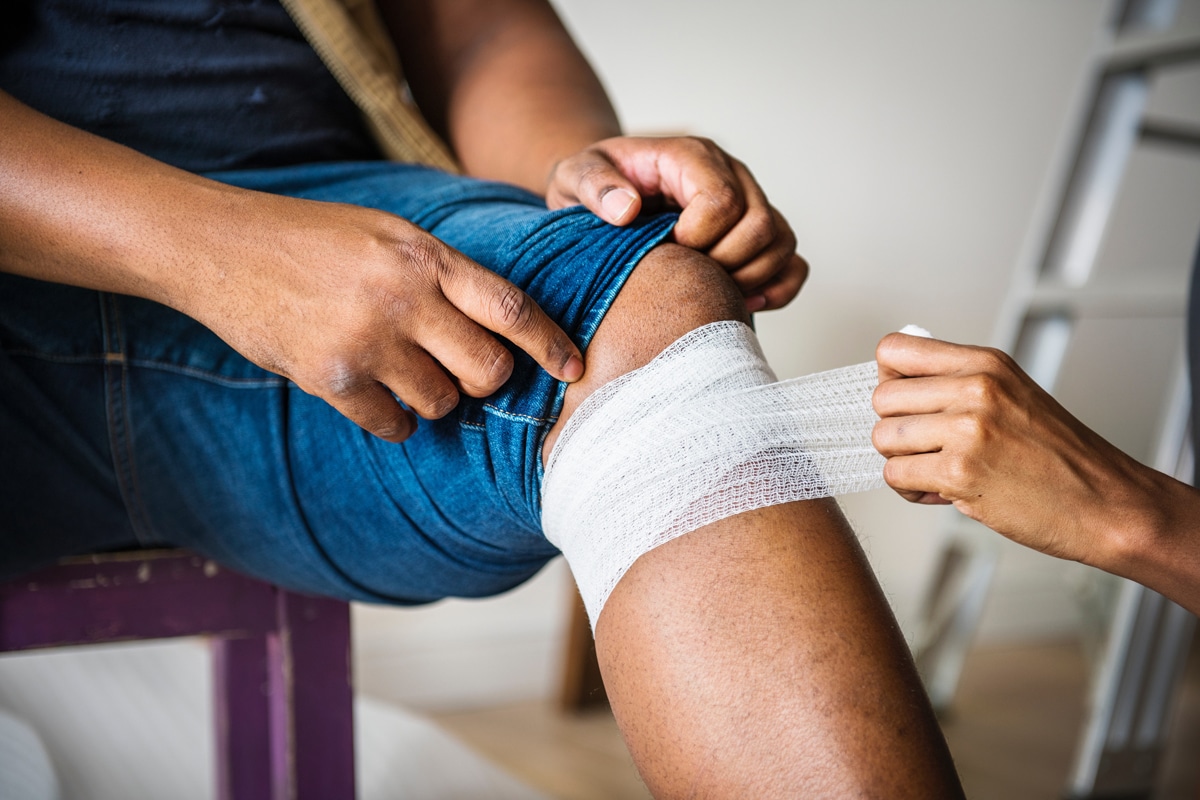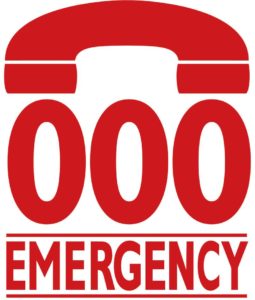Travel insurance is a major consideration when preparing for your departure abroad, no matter where you are travelling to. Some wonder if it is essential to take a policy out, and others wonder what is the best insurance to leave with complete peace of mind. Nobody wants to think about what can go wrong whilst travelling or picture the worst case scenarios such as a car crash, snake bites or surf accidents… But it is easy to forget you could also just get a bad cold and need to see a doctor. So even if it’s not the most entertaining part of preparing your travels, it is important to research travel insurances. This comprehensive article answers all your questions and helps you choose the coverage that best suits your needs for your trip.
Table of Contents
Working Holiday travel insurance: Comparison
There are a few insurances that offer special health insurance policies for travellers on a Working Holiday visa (in Canada, Australia, New Zealand or Argentina, etc). This is why we have drawn up a comparison of Working Holiday travel insurances for Australia & New Zealand that will make it easier for you to choose one that best meets your needs.
There are a plethora of comparison websites with search engines that spit out an overwhelming number of travel insurances. It’s difficult to make a general comparison though, as individual interests and plans differ. We have been working successfully with the partners listed below. If their policies don’t meet your needs, you will surely find a travel insurance provider that offers what you want, when doing your own research. We don’t recommend you to take out a cheap cover. Always compare travel insurance before subscribing.
SafetyWing
SafetyWing is a company that specializes in providing travel medical insurance for digital nomads, remote workers, and long-term travelers. Founded with the aim of creating a safety net for the global workforce, SafetyWing offers flexible, comprehensive coverage that can be initiated and adjusted according to the unique needs of individuals who live and work from different parts of the world. Unlike traditional insurance policies that require long-term commitments, SafetyWing operates on a subscription basis. You can choose to start, pause, or stop your coverage as your travel plans change.
SafetyWing provides coverage for unexpected medical expenses, including accidents and illnesses, as well as travel-related issues such as trip interruptions, lost checked luggage, and natural disasters.
Go Walkabout (UK citizens only)
Go Walkabout offers a very competitive Travel Insurance to UK citizens traveling with a Working Holiday Visa.
Go Walkabout is a travel insurance company known for offering a wide range of insurance products tailored to meet the diverse needs of travelers. Specializing in policies for backpackers, those taking working holidays, and individuals embarking on once-in-a-lifetime adventures like gap years or extended overseas stays, Go Walkabout is committed to providing comprehensive coverage that ensures peace of mind. Their offerings include cover for medical emergencies, trip cancellations, lost or stolen baggage, and even specific activities that are often excluded by standard policies, such as adventure sports. With a focus on flexibility and customer service, Go Walkabout aims to make the process of purchasing and using travel insurance straightforward and hassle-free, ensuring travelers can focus on enjoying their journey with the assurance that they are well protected.
Go Walkabout Working Holiday policy has been specifically designed to cover a large range of jobs you might be doing whilst away from the UK. It also covers activities: 99 sports, activities, and leisure pursuits (without extra cost) , but you can also have a multitude of other activities covered with the addition of further activity packs.
Prices depend on different factors, such as your age, the length of your trip, visited countries, etc. But you can get a quick quote by clicking on the button below. Make sure to use our promo code ABG10 to get a 10% discount!
True Traveller
True Traveller is a travel insurance company highly regarded by backpackers, adventurers, and long-term travelers for its comprehensive and flexible insurance options. They offer three Policies called True Value, Traveller and Traveller Plus. True Value is designed for travellers under 40 years of age, and is designed for last minute travellers and backpackers. The Traveller policy, is designed for holiday makers and adventurous travellers alike, and Traveller Plus gives enhanced medical and cancellation cover.
What sets True Traveller apart is its ability to provide coverage for a vast selection of adventure activities that many other insurers exclude, making it a popular choice for those engaging in hiking, skiing, scuba diving, and more. Customers can tailor their insurance to suit their specific travel plans, with options for single trips, multi-trip coverage, and extended stays. True Traveller is known for its straightforward claims process and excellent customer support, ensuring that travelers have access to assistance whenever they need it, wherever they are in the world.
World Nomads
World Nomads is a simple and flexible travel insurance for international travel. One of the key features of World Nomads is its flexibility. Policies can be purchased and modified online, even after the trip has begun, making it an ideal choice for long-term travellers and those whose plans are fluid.
World Nomads covers more than 100 countries worldwide except those that have specific Government ‘Do Not Travel’ warnings in place, and any sanctioned countries. So before or after your Working Holiday Adventure in Australia, you can easily have a stop over for a few days or even for a few months in other countries like Indonesia or New Zealand while being covered.
What truly sets World Nomads apart is its deep commitment to the travel community, offering not just insurance, but also a wealth of resources, travel guides, and safety tips to help travellers prepare for their journeys.
Prices depend on different factors like country of residence, age, duration of your travel, and countries you are going to visit. To get a quote, click on the button below.
Note: We receive a fee when you get a quote from the agencies listed above when you use the links provided. We do not represent these agencies. This is not a recommendation to buy travel insurance.
Remember, not all insurances offer the same cover in relation to luggage, emergency care, the practice of extreme sports, or even a possible repatriation or return to the country. Let’s say your teeth have caused a bit of pain lately, so make sure that emergency dental costs are covered. If you plan to go scuba diving, have a look if scuba diving is included. If you’re keen to travel for more than a year, choose a health insurance policy that will cover you for up to 24 or even 36 months. Most importantly, tick off the main criteria that are reimbursement of medical expenses and hospitalization, repatriation, and civil liability.
How to choose the best Working Holiday travel insurance?
There are quite a few health insurance providers, all of which have special features. To make the right decision, you need to thoroughly inform yourself and choose insurance that best suits your needs. This means, don’t skip reading the details.

When should I take out travel insurance?
It is advisable to take out health insurance as soon as you know your departure date. So wait until you have obtained your WHV and bought your plane ticket to subscribe. We advise you to subscribe a little in advance (2 or 3 weeks before departure).
In any case, insurance will not cover illnesses or accidents occurring before the contract takes effect.
If you are already abroad, do not panic! You can also take out insurance to cover you if you’ve already started travelling and already overseas. However, a waiting period may be applied (except in the event of contract renewal), always check with the insurance company prior taking out a policy.
Do I need a travel insurance?
When travelling abroad, you are generally more active and venturesome. Even though in most cases, you are as fit as a fiddle when coming out of the surf or back from a hike, there is always a chance that something goes wrong. Moreover, conditions in foreign countries are different, so the likelihood of falling sick is higher. Here are some of the reasons why you should get covered before leaving:
Healthcare System in Australia
You should think about getting a travel insurance for Australia to cover the services not included in the Medicare insurance, which are important for you and in case something goes wrong. It is also important for the time you are travelling overseas before or after your Work & Travel adventure.
Citizens of the United Kingdom,the Republic of Ireland, New Zealand, Sweden, the Netherlands, Finland, Italy, Belgium, Norway, Slovenia, Malta can benefit from the Australian Health Care System (Medicare) thanks to bilateral agreements with Australia. For others, as Medicare is limited to citizens and permanent residents, travellers or temporary residents are not entitled to claim any benefits from Medicare. You should check if your national insurance plans cover international travel. If not, it is highly recommended to get a travel insurance.
As a member of the United Kingdom, you are eligible for Medicare. However, you aren’t covered at work for example, or when you need repatriation back to the UK if necessary. That’s why you need to consider getting a travel insurance.
The cost of living is high in Australia. The same goes for medical expenses, hospitalisation, etc. Here some examples of prices:
- Consultation with a general practitioner: from 80 AUD;
- Consultation at a dentist: 200 AUD;
- One day of hospitalisation: from 1500 AUD excluding care.
If you did not get any health insurance that covers you in Australia, these expenses are obviously yours. To make it short, if you don’t want to pay for potential medical expenses in full yourself, take out travel insurance!
Unsuitable Bank Card Insurance
Some travellers leave with a Visa Master or Gold Mastercard, thinking they will be covered no matter what. First of all, note that credit card insurance generally only covers you for a maximum period of three months. Working Holiday Makers usually come to Australia anywhere between six to 24 months (or 36!). Moreover, in general these cards only cover emergencies and repatriations, not traditional care such as consultations with a GP and medication.
Health Risks in Australia
By leaving for a few months, or even for one or two years, to Australia you will be of risk of having accidents. Nevertheless, every year backpackers leave for Australia without insurance trying to save some money, but end up finding themselves in really delicate situations. Australia can be an adventurous country and it is not uncommon to undertake exciting activities such as skydiving, scuba diving, cliff jumping etc. Inherently, the risk of accidents is higher when the danger can be part of the excitement. Even during a road trip, you might run into accidents. In the worst case we must also think about our families. In case of death, the cost of repatriation of the body and funeral expenses can be extremely expensive. Nobody wants to think about these things, but they do happen and it is better to be prepared beforehand.
Aside from the risk of accident you can get sick while traveling in Australia. A simple cold, food poisoning, a toothache…small annoyances of everyday life that can quickly eat up your travel budget if you do not have insurance.

Also there are health risks related to animals and insects. Pay particular attention to mosquitoes! Although the risk is low, cases of dengue have been revealed in northern Queensland. Mosquitoes are also vectors of transmission of the Ross River virus or Murray Valley encephalitis (similar to Japanese encephalitis).
Australia is also home to a variety of venomous creatures, including snakes, spiders, jellyfish, and marine animals like the blue-ringed octopus. While encounters with these creatures are relatively rare, it’s important to be cautious, especially in natural habitats, and know what to do in case of a bite or sting.
Australia’s high pollen levels and unique flora can trigger allergies and asthma for some individuals. The country also experiences periodic dust storms and bushfire smoke that can affect air quality. Those with respiratory conditions should carry necessary medication and stay informed about air quality reports.
Precautions and Preparedness
Know the local emergency number in Australia: ‘000’
The most important number is “000“, which includes police, firefighters, and ambulances, who are available 24 hours a day, 7 days a week. This number is common to the whole of Australia.
Royal Flying Doctor Service for remote areas
In remote areas, it may take some time before these help desks can help you. In this case, contact the Royal Flying Doctor Service, a group of doctors and pilots who can fly in to rescue you from the outback. These are the numbers for different states:
Western Australia
For satellite phone calls : 08 9417 6389
Tasmania
SA / NT
SA (Outback Areas): 1800 RFDS SA (1800 733 772)
NT (Central Australia): 1800 1MRACC (1800 167 222)
NT (Top End/Darwin): 000 (St John NT)
HF Radio: (4010kHz, 6890kHz or 8165kHz)
Satellite Telephone: 08 8648 9555 or +61 1800 RFDS SA (+61 1800 733 772)
Victoria
Please dial 000 for emergency assistance.
NSW / ACT
Queensland
1300 My RFDS (1300 69 7337)
Emergency Poison Advice
Poisons Information Centre provides the latest poisons information to the public, and toxicology advice to health professionals on the management of poisoned and envenomed patients.
Telephone advice is available 24/7 on 131126 from anywhere in Australia.
First Aid kit
Carry a basic first aid kit and any personal medications with you.
What are the compulsory or recommended vaccines in Australia?
Before the Covid-19 pandemic, no vaccines were compulsory in Australia. However, some vaccines were strongly recommended to protect you against some health risks. From the beginning of 2020, Australia required vaccination against Covid for entry into the country. Currently in 2024, vaccination against Covid is no longer mandatory for travellers. You no longer need to wear a mask on flights, and you do not need proof of a negative Covid test to enter Australia.
To protect you during your trip to Austraia, it is strong recommended that you get vaccinated against:
- Tick-borne encephalitis (rickettsioses) if you plan to go to northern Australia or rural areas.
- Rabies if you plan to visit rural areas. Rabies still exists in Australia and is carried by dingoes and bats. You would have to be very unlucky to catch it but it’s best to be protected.
These vaccines are available at medical centres specialising in international travel. Bring a copy of your vaccination record and your international vaccination certificate with you on your trip to Australia, as well as a copy of your travel insurance cover.
FAQs
Am I reimbursed for healthcare costs while I am abroad
When you go abroad, your medical expenses are no longer covered by services at home. Only by taking out travel insurance will you be covered in the event of illness or accident abroad./p>
Isn't my bank card insurance enough for my trip?
If you have a premium bank card (Visa Premier or Mastercard Gold), you can benefit from cover for up to 90 days. However, most WHV stays last between 6 and 24 months. These cards will not cover standard medical care, but only emergencies and repatriation. Basic cards generally do not offer health cover for travelling abroad.
Am I covered in other countries during my trip?
This will depend on the insurance company you choose. However, in most cases, you are covered worldwide as long as your working holiday visa is valid. So you will be covered in your working holiday host country and also in the rest of the world if you decide to travel during your WHV. Be careful, however, to check the cover that applies outside your whv country (often tourist cover, so you won’t be covered in the event of an accident at work, for example).
How do I renew or extend my travel insurance?
It’s quick and easy! All you have to do is go to your insurer’s website and take out a new policy with new dates. The start date of the new policy must, of course, be the day after the end of your first policy. This will ensure that you don’t run into any problems if an incident or illness occurs between the two policies. If this were the case, there would unfortunately be no coverage.
Updated on 19/02/2024


























